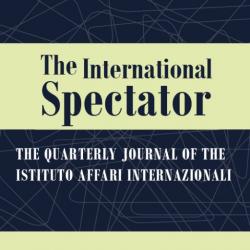Overcoming ‘Otherness’: Central and Eastern European Nations and the Idea of ‘Europe’

The idea of ‘Europe’ in Central and Eastern Europe (CEE) has evolved significantly during the three decades of post-communist transition. Initially, anti-Soviet elites from the 1980s portrayed the region as equal/complementary to the Western part of the continent, which for its part perceived CEE as its ‘Other’. The first decade of post-communist transition was marked by a switch to nationalist thinking and the evocation of the idea of ‘Europe’ as one of nation-states. Finally, contemporary discourses of ‘Europe’ in CEE revolve around three different pillars, that is, European exceptionalism, European universalism and Transatlanticism, in contrast to Western discourses.
Keywords: Central and Eastern Europe; idea of Europe; European identity; post-communist transition; Otherness
-
Dati bibliografici
The International Spectator, Vol. 57, No. 4, December 2022, p. 104-120 -
Numero
57/4 -
ISBN/ISSN/DOI:
10.1080/03932729.2022.2093934



